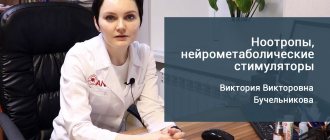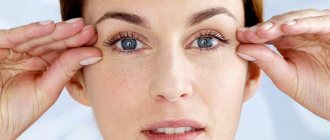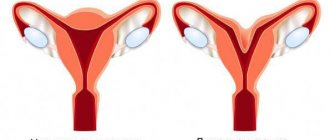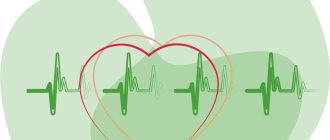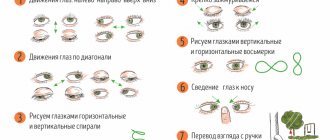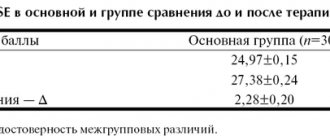TOP 20 drugs to improve the brain 2021
| Drug name | Age restrictions | Doctor's prescription | price, rub. | Rating* |
| Phenotropil (editor's choice) | up to 18 years old | not needed | 880 — 1140 | 9,5 |
| Thiocetam | up to 18 years old | needed | 500 — 550 | 9 |
| Nootropil | up to 3 years | needed | 130 — 330 | 8,5 |
| Memoplant | up to 18 years old | not needed | 600 — 1200 | 8 |
| Cavinton | up to 18 years old | needed | 170 — 730 | 8 |
| Aminalon | No | not needed | 120 — 230 | 8 |
| Bilobil | up to 18 years old | not needed | 260 — 1000 | 7,5 |
| Divaza | up to 18 years old | not needed | 260 — 350 | 7,5 |
| Piracetam | No | needed | 30 — 140 | 7,5 |
| Encephabol | No | needed | 650 — 1000 | 7,5 |
| Vitrum memory | No | not needed | 530 — 2200 | 7,5 |
| Undevit | No | not needed | 30 — 90 | 7 |
| Ginkgo biloba | up to 18 years old | not needed | 100 — 2000 | 7 |
| Glycine D3 | No | not needed | 180 — 500 | 7 |
| Picamilon | No | needed | 70 — 170 | 7 |
| Cerebrolysin | No | needed | 660 — 1500 | 7 |
| Glycine | No | not needed | 50 — 200 | 6,5 |
| Intellan | No | not needed | 180 — 230 | 6,5 |
| Noofen | up to 8 years | not needed | 70 — 470 | 6,5 |
| Fezam | up to 5 years | needed | 240 — 360 | 6 |
* The rating was calculated based on a combination of factors: side effects, availability of a prescription from a doctor, cost, reviews
The best drugs to improve brain activity for different age categories
| For children and schoolchildren | For students | For adults | For pensioners and the elderly |
| Glycine | Fenotropil | Nootropil | Glycine D3 |
| Vitrum memory | Nootropil | Thiocetam | Piracetam |
| Piracetam | Piracetam | Memoplant | Undevit |
| Picamilon | Vitrum memory | Fenotropil | Aminalon |
How to become the owner of perfect memory?
Daily stress does not pass without leaving a trace. They have a direct impact on the thought process when there is too much information, much of which is unnecessary. As a result, a person begins to forget most of the important “little things”, for example, when going shopping, they do not remember what they intended to buy, or whether they turned off the gas in the house when leaving. Forgetfulness cannot be ignored at any age, since the situation will only get worse with age.
Among the available ways to improve memory and brain activity, the following are considered the best:
- Enrichment of the diet with carbohydrates. The structure of these nutrients is converted into glucose. To replenish the supply of this substance, it is enough to have breakfast with an omelet, a slice of bread baked from whole grains, and also an omelette.
- Dancing and sports. You don't have to practice for hours. It is enough to perform some exercises to stimulate blood flow to the brain. Scientific studies have shown that people who move actively absorb information 20% faster than those who neglect physical exercise.
- Typing. The development of memory is well facilitated by texts typed in unusual text, but the effect is not noticeable immediately, but gradually.
- Search for information. Don't miss the chance to learn more than just fulfill your job responsibilities. This will undoubtedly help stimulate brain activity.
- Record places in memory. People parking their car in a parking lot can stand next to it for a while and look left or right to remember where the car is.
- A small amount of quality alcohol. A small portion before dinner helps develop memory well, as it stimulates blood circulation.
- High-quality teeth cleaning using dental floss. A large number of bacteria remain on the gums during the day from the food consumed during the day. And if you do not get rid of them carefully, they have a bad effect on the functioning of all organs.
These simple and affordable ways to improve memory are quite easy to implement into your life.
Top 5 Supplements for Long-Term Memory
Over-the-counter medications
Glycine
The most popular drug in Russia.
Often used for stress and increased nervous excitement, psycho-emotional tension. Very common among students during a session when preparing for exams. The main purpose is to increase mental performance. Application form: 1 tablet 3 times a day.
Side effects: allergic reactions are possible.
Vitrum memory
It is recommended to take this drug if there is a decrease in attention, speed of thinking, or deterioration of intelligence. Herbal preparation. Improves oxygen supply to the brain and improves cerebral circulation. Prevents hypoxia (lack of oxygen). Available in tablet form.
Application form: 1 tablet 2 times a day for 3 months
Side effects: headache, dizziness, dyspepsia, allergic skin reactions.
Memoplant
Herbal German preparation with ginkgo biloba extract EGb761®.
It differs from similar extracts in its high degree of purification due to 27-stage production in Germany, during which carcinogenic ginkgolic acids are removed from the medicine. Used to improve memory and concentration, and to treat dizziness and tinnitus or head noise. Improves microcirculation in the brain. Increases neuroplasticity and neurotransmission. Has a long-term effect.
Application form: 1 tablet 1-2 times a day.
Undevit
It is a pill containing a complex of vitamins A, B, C, E and P, which, when combined in the correct proportions, give a synergistic effect. Recommended for metabolism in old age, as well as after illnesses during the recovery period.
Application form: 2-3 tablets per day for 20-30 days
Side effects: possible allergic reactions
Aminalon
Restores the dynamics of nervous processes, removes toxins formed during metabolism in the brain. In patients with diabetes mellitus it helps reduce glucose levels. Recommended after traumatic brain injury
injuries
Application form: 1/3 of the daily dose 3 times a day before meals. Daily dose: children 1-3 years old 1-2g, children 4-6 years old - 2-3g, children over 7 years old - 3g. The course of treatment is from 2 weeks to 4 months.
Side effects: nausea, vomiting, blood pressure lability, dyspepsia, increased body temperature, sleep disturbance.
Bilobil
It is recommended for problems with intellectual abilities and sleep, as well as for those who experience anxiety and fear. Microcirculation and oxygen supply to peripheral brain tissues improves. Contraindicated for persons under 18 years of age.
Application form: 1 capsule 3 times a day for at least 3 months
Side effects: redness, skin rash, swelling, itching, dyspepsia, headache, insomnia, decreased blood clotting.
Intellan
The drug, containing only plant extracts, is available in capsule form. It is used for deterioration of mental activity, acute depressive states and disorders, and forgetfulness. Suppresses anxiety and depression.
Application form: 1 capsule 2 times a day after meals, morning and evening for 4 weeks
Side effects: possible allergic reactions
Ginko biloba
The drug contains extract of leaves of the flexible biloba tree.
Recommended for dizziness, sleep disorders, ringing in the ears, decreased attention and memory. Not recommended for persons under 18 years of age or during pregnancy. It has an antihypoxic effect and improves tissue metabolism. Application form: 1 capsule (80 mg) 2 times a day for 6-8 weeks
Side effects: possible allergic reactions
Divaza
It is used for disorders of the central nervous system (CNS), including those caused by traumatic brain injury. Restores interhemispheric connections of the brain. The synergism of the components has a positive effect on neuronal plasticity - this increases the brain's resistance to toxic influences. Not recommended for people under 18 years of age and pregnant women.
Application form: 1-2 tablets 3 times a day.
Side effects: Tablets are not recommended for use in cases of glucose-galactose malabsorption syndrome, congenital galactosemia or congenital lactase deficiency, since the drug contains lactose.
Glycine D3
Glycine D3 is a dietary supplement that combines glycine and vitamin D3. These components reinforce each other, activating the central nervous system. Recommended for stimulating brain function and normalizing metabolism in the brain.
Application form: 1 effervescent tablet 1 time per day.
Side effects: not detected.
Vasobral
This memory improving drug contains caffeine and α-dihydroergocriptine. “Vasobral” stimulates tissues to be resistant to lack of oxygen and blocks adrenaline receptors. The drug improves vascular function, has a diuretic effect, relieves excess drowsiness, and improves performance. Patients who took Vasobral note that this drug is well tolerated and really stimulates memory, mental activity and attention. Doctors say that a long course of treatment is required to achieve maximum effect.
Vasobral
Chiesi, France
A nootropic drug that is used for: Decreased mental activity, impaired attention and memory, impaired spatial orientation caused by age-related changes;
- cerebrovascular insufficiency (including due to cerebral atherosclerosis); - consequences of cerebrovascular accident; - migraine prevention; - vestibular and labyrinthine disorders (dizziness, tinnitus, hypoacusia) of ischemic origin; - Meniere's disease; - retinopathy (diabetic and hypertensive); - peripheral arterial circulation disorders (Raynaud's syndrome and disease); - venous insufficiency. from 879
5.0 3 reviews
1034
- Like
- Write a review
Prescription drugs
Attention! Before using medications, be sure to consult your doctor.
Thiocetam
Thiocetam has a triple effect on nerve cells: antioxidant, antihypoxic and nootropic.
Contains piracetam and thiotriazoline, which mutually enhance each other's effects. Improves long- and short-term memory, promotes the learning process, eliminates amnesia. The drug is also used to treat headaches arising from chronic cerebral ischemia
Form of application: There are two forms of release of Thiocetam.
- Pills . Use 2 tablets 3 times a day. The recommended course is 25-30 days, but sometimes extended to 4 months.
- Injections for intravenous administration. Course 2 weeks.
To increase the effectiveness of treatment, step-by-step therapy is prescribed: first injections, then switching to tablet form.
Fezam
Recommended for the prevention of migraines, kinetosis, decreased intellectual functions (memory, attention, mood), as well as intoxication. Contraindicated during pregnancy and children under 5 years of age. Improves blood circulation and brain metabolism.
Application form: 1 capsule (80 mg) 2 times a day for 6-8 weeks
Side effects: possible allergic reactions
Piracetam
It is used for dizziness, decreased attention, Alzheimer's disease, in old age and cerebral circulatory disorders due to injuries. Popular among students during the session.
Form of application: 150 mg/kg per day in 2-4 divided doses. The duration of treatment is 8 weeks.
Side effects: headache, tremor, in some cases - weakness, drowsiness.
Nootropil
The drug contains the active substance - piracetam. Improves the functions of attention, concentration, memory without having a psychostimulating effect. Recommended for children with dyslexia. Contraindicated in children under 3 years of age.
Form of application: to be confirmed with a doctor
Side effects: increased sexual activity. Rarely - abdominal pain, nervousness, agitation, irritability.
Fenotropil
Tablets with a yellowish tint increase the content of norepinephrine and serotonin in the blood.
Improves blood supply to the lower extremities. Increases energy levels in the body and oxygen levels in the brain. The effect is evident even after a single dose. Drug dependence does not develop. Form of application: 2 doses of 100-200 mg for 30 days.
Side effects: insomnia (when taking the drug after 15 hours).
Encephabol
Improves blood circulation in the brain, memory indicators and restores impaired metabolic processes in nervous tissue. Recommended for mental impairment, childhood encephalopathy and cerebral atherosclerosis.
Form of application: determined by the doctor individually.
Side effects: hypersensitivity to pyritinol.
Cavinton
A drug that improves brain metabolism. It is used for insufficient blood circulation in the brain vessels, for example: vascular atherosclerosis, after a stroke, hypertensive encephalopathy. Contraindicated during pregnancy and children under 18 years of age.
Form of application: 5-10 mg 3 times a day for 3 months.
Side effects: allergic skin reactions, increased sweating.
Picamilon
With long-term use, it improves mental abilities, helps reduce anxiety, improve attention and memory, and normalizes sleep.
It is also recommended for people suffering from neuropsychiatric diseases. Form of application: 60 mg per day for 1.5-3 months.
Side effects: nausea, headache, dizziness, irritability, agitation, anxiety, allergic reactions (rash, itching).
Cerebrolysin
Available in the form of ampoules. Protects against the formation of free radicals, reduces the harmful effects of glutamate. Recommended for Alzheimer's disease, ischemic stroke, attention deficit and hyperactivity disorder in children.
Application form: 60 mg per day for 1.5-3 months
Side effects: rarely - itching and burning at the injection site, dyspepsia, loss of appetite, confusion, insomnia.
Noofen
Recommended for anxiety-neurotic conditions, insomnia and night anxiety in the elderly
Side effects: headaches, drowsiness, nausea.
Before using medications, carefully weigh the PROS and CONS of using such products. Almost everyone has side effects that are not necessarily reflected externally on the body, but can negatively affect the condition of the internal organs.
Why does memory deteriorate?
- Exhaustion of the body due to prolonged stress, depression or lack of sleep.
- Lack of B vitamins.
- Atherosclerosis and cerebral circulatory disorders.
- Use of drugs or alcohol.
- General anesthesia or taking certain medications.
- Traumatic brain injury, surgical treatment of the temporal lobes of the brain.
- Dementia, Alzheimer's, Parkinson's, etc.
- Psychiatric diagnoses.
- Encephalitis or meningitis.
- Benign or malignant brain tumors.
Medicines to improve memory for children
Some of the above drugs can be used by children, but very carefully.
Regarding improving memory for children with the help of drugs, there is a very interesting video - watch:
In situations with children, the problem may not be with memory and brain.
If a child cannot remember information for a long time, perhaps this is not his strong point. Maybe he likes music or dancing better, think about it before next time you force him to remember something.
Can a child become addicted to a stimulant?
Psychostimulants are classified as addictive drugs. However, some research suggests that taking a stimulant to treat ADHD may actually reduce the risk of substance abuse during adolescence, rather than increase it.
But children and teenagers are still at risk of abusing their medications. If abused, they take it in higher doses to achieve a strong effect. To avoid these risks, keep the medication in a safe place, monitor the medication, and, if possible, have school staff monitor your child's medication while at school.
Do medications help improve memory?
As neuroscientist K.V. Anokhin: “At the moment there are no drugs that would actually improve memory.”
All drugs (including those listed above in the article) have psychotropic functions, not mnemotropic ones. This means that such drugs affect blood circulation and processes associated with attention, perception, and concentration. But they do not directly affect memory.
People want a magic pill, an analogue of NZT from the movie "Dark Areas", but there is none.
In addition, think about what you are risking by trying different modern drugs...
Homeopathy and nootropics
Since memory is a rather delicate thing, and a person can convince himself that after taking pills his memory has become much better, then homeopathy has blossomed in full bloom. Various homeopathic companies produce medicines to improve memory in abundance. About homeopathy, let’s just say that in the USA, manufacturers of homeopathic medicines are required to indicate on their packaging that these medicines and their manufacturers use the knowledge of medicine of the 18th century, and their homeopathic medicines do not have proven effectiveness.
As the reader has probably already understood, in this review of “vitamins to improve memory” there will be no homeopathy, no animal extracts, or drugs to improve cerebral circulation. What drugs have the right to be closest to improving memory and attention? First of all, this is a nootropic drug, the ancestor of which is piracetam. Then there are drugs whose molecules are integrated into the membrane structures of neurons and improve their functioning, as well as the conduction of nerve impulses. These are medications containing citicoline.
There is no escape from simple, good old glycine, which is the simplest amino acid and one of the main inhibitory mediators in the central nervous system. Let's add to this several drugs that can activate thinking and have a psychostimulating effect. Constant stimulation is extremely harmful, but if it is necessary to strengthen thinking, during intensive studies, if it is necessary to pass exams and assimilate a large amount of material, psychostimulants are irreplaceable, but only in short courses.
